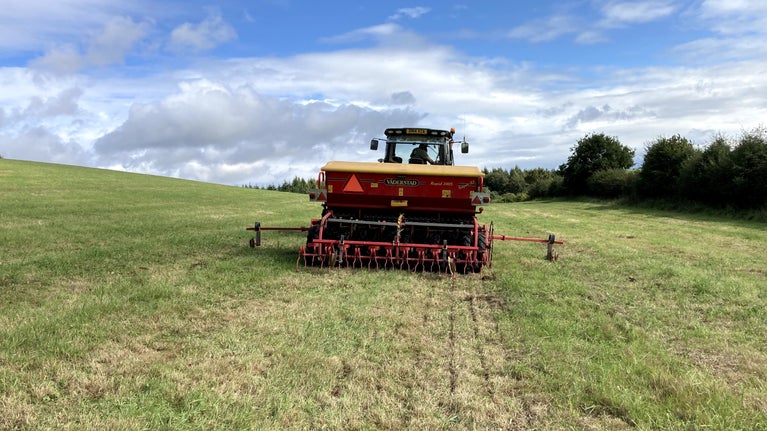
Residential and farm lettings
In addition to our hundreds of places that are open to the public, we have a wider estate of houses, cottages and farms available for tenants to let.

The National Trust aims to give an excellent service to all our tenants. However, we recognise that from time to time things can go wrong. When this happens, we want to try to put things right as quickly as possible. We value complaints as an opportunity to learn and continually improve our service. Find out how to make a complaint as a tenant and what you can expect from us throughout the process.
We let a variety of properties, from houses and cottages, units for business purposes through to land and buildings for agricultural use. Our status as a charity means we are bound by the Charities Act to rent out properties on the best terms we can reasonably obtain.
As a landlord we aim, above all, to be fair and professional. We recognise we have an important responsibility to you and to all our tenants. We want to provide you with as good a service as we can. Our priorities are to:
In this procedure, a complaint is any expression of dissatisfaction about any aspect of your relationship with the National Trust as your landlord. For example, this may be dissatisfaction with:
The Trust will not treat your first request for a service (such as a repair) as a complaint. It will only be treated as a complaint if the service you have requested has not been performed in a reasonable time or if it has been inadequately performed.
Complaints do need to be raised within a reasonable time scale. We recommend that complaints are raised as quickly as possible and certainly within six months of the issue happening.
If your complaint relates to something which might lead to a legal claim against us or a claim on our insurance policy (such as a personal injury claim or property damage) it may be dealt with outside of this complaints procedure by one of our legal advisors, our insurers or a relevant regulator. We will let you know if this is the case.
If you have a complaint about an aspect of the Trust’s work which does not relate to your relationship to us as a tenant, this is dealt with under one of our other complaints procedures.
Matters are often best resolved through early discussion at a local level and most tenant issues are resolved positively with the Estate Manager and/or local property team. Before you start stage 1 of this procedure, we would encourage you to raise any issues with your local team, either:
If you mention to us that you have a complaint, we will arrange for someone at a local or regional level to speak to you informally to see if matters can be resolved. However, if those discussions have not resolved matters, we will use this complaints procedure to formally deal with your concerns.
We have provided guidance for tenants on how to make a complaint. We have also provided a stage 1 form and a sequence of events document which we would encourage you to use when setting out the details of your complaint. However if you are unable to access our form, you are welcome to make a complaint by either letter or email addressed to the person mentioned in stages 1 to 4 below.
At this point, we need your complaint to be made in writing so that we are clear as to your concerns. You may prefer to ask a relative, friend, solicitor or advice worker to help you or to submit a complaint on your behalf. You can do this at any stage of the complaints procedure.
If a friend, relative or advice worker is submitting a complaint on your behalf, we will need express confirmation that you are happy for us to discuss matters regarding your tenancy (including financial matters) with them. This is called assigning authority and we have provided a template authority form in order for you to do this. Alternatively, we will need an official document such as a power of attorney enabling the person to deal with your affairs on your behalf. This is not needed if a solicitor or other legal advisor is acting for you.
The National Trust aims to resolve all complaints as quickly as possible. However, some complex complaints may require a significant amount of time to thoroughly investigate and resolve. We will keep you informed of the progress being made with your complaint all the way through the process.
This process will be reviewed and updated when appropriate.
We will do our very best to resolve any complaint at the earliest opportunity. In the first instance, all complaints should be directed to the Senior Estate Manager for your local property. You can find out who this is from your usual Estate Manager.
If you do not know who that is, please email tenant.enquiries@nationaltrust.org.uk and they can give you the contact details for your Senior Estate Manager.
What happens next?
Your local Senior Estate Manager will acknowledge your complaint within 10 working days and will let you know who will be investigating the matter. Your complaint will be allocated to another Senior Estate Manager. This will be someone who does not manage any of the staff involved in the matter to date.
We will aim to respond to your complaint within a further 15 working days. If it is not possible to resolve your complaint within this period, we will write to you and explain that this is the case. We will also give you an idea of the likely date by which we will have investigated your complaint.

If you are not satisfied with the response to your complaint by the Senior Estate Manager, you can take the matter further by sending our further appeal stage form, letter or email to the Regional Head of Let Estate for your region. You can also ask someone else (e.g. an advice worker, solicitor, friend or relative) to make the complaint on your behalf.
You need to write to the Regional Head of Let Estate within one month of receiving the formal response to your original complaint. The details of your Regional Head of Let Estate are available from your local Estate Manager or the Senior Estate Manager dealing with your complaint.
It is important that you provide as much detail as possible at this stage and explain exactly why you are not happy with the Senior Estate Manager’s response to your complaint.
What happens next?
The Regional Head of Let Estate will acknowledge your complaint within 10 working days and will let you know who will be investigating. They will allocate your complaint to one of our other Regional Heads of Let Estate outside of your region. This will ensure the matter is reviewed by someone who does not manage any of the staff involved in the matter to date.
The investigating Regional Head of Let Estate will make enquiries with relevant local staff to gain a full background about the complaint and will respond to you within a further 15 working days wherever possible. If the investigation is likely to take longer, you will be advised of this and given a date by which the Trust will be in a position to respond fully to your complaint.
If the investigating Regional Head of Let Estate believes the matter could potentially be resolved by mediation they can (provided you are willing) refer the matter to mediation to enable us to find an amicable resolution. We have included an explanation about what mediation is in our guidance for tenants.
If you remain dissatisfied following the outcome of this latest investigation, or if mediation is not successful, you (or a friend, relative, advice worker authorised by you) must notify our Director General in writing within one month of the formal response from the investigating Regional Head of Let Estate.
Your complaint will be acknowledged within 10 working days.
What happens next?
The Director General may refer your complaint to a central panel. The panel is chaired by the Land and Estates Director and consists of a senior National Trust lawyer, a senior National Trust chartered surveyor, a Regional Director (from a different region) and an external professional expert selected on a case by case basis.
The panel will review your complaint and the previous investigations into your complaint, within one month of having received it from the Director General. You will have the opportunity to submit any written evidence which you would like to provide before they consider the matter.
Once the panel has fully investigated your complaint, they will brief the Director General who will make a decision in respect of your complaint. If we are unable to respond to you within one month of the matter being referred to the panel, we will write to you with an explanation and give a date by which the investigation into your complaint will be completed.

If following the outcome at stage 3 you are dissatisfied about the way your complaint has been handled, then you can contact our Chair and our Chair may refer your concerns to a professionally qualified member of the Royal Institution of Chartered Surveyors (RICS) to act as an external expert to review our handling of your complaint and to make a recommendation as to whether they consider we should take any further actions in the matter (we refer to this as the 'Recommendation'.) Again, we ask you to submit this within one month of receiving our formal response at stage 3.
What happens next?
We will try to agree the identity of the expert with you but in the event it has not been agreed between us within one month of either of us proposing a specific expert, we will ask the president of the RICS to appoint the expert. The expert should have at least 10 years’ experience in managing either residential, commercial or agricultural tenancies, as may be relevant to your complaint.
Once appointed, the expert will be required to ask both parties to submit written representations about the handling of your complaint. The expert will be entitled (but not obliged) to speak to the parties if the expert believes that will be of assistance to them.
The expert shall be invited to make the Recommendation to the Chair as soon as possible but in any event within three months of appointment. In the event the expert believes the matter is of such complexity that this timescale is not realistic, then the expert shall set out a revised timescale for making the Recommendation. We will keep you informed of any revised timescales.
The Chair will review the Recommendation and shall make a final decision regarding our handling of your complaint. In making any decision, the Chair will have regard to the Recommendation from the expert.
This process will be reviewed and updated when appropriate. It was last updated in December 2022.
Please find links to supporting documents in the section below.

In addition to our hundreds of places that are open to the public, we have a wider estate of houses, cottages and farms available for tenants to let.
Find answers to any questions you may have about your tenancy with the National Trust, including help with repairs and rent.

Find out about our current farm lets for tenant farmers. We update the details as and when farms become available, so check back regularly.

We advertise all our houses on an external website, and you can find information on what we look for when interested in becoming a tenant.
